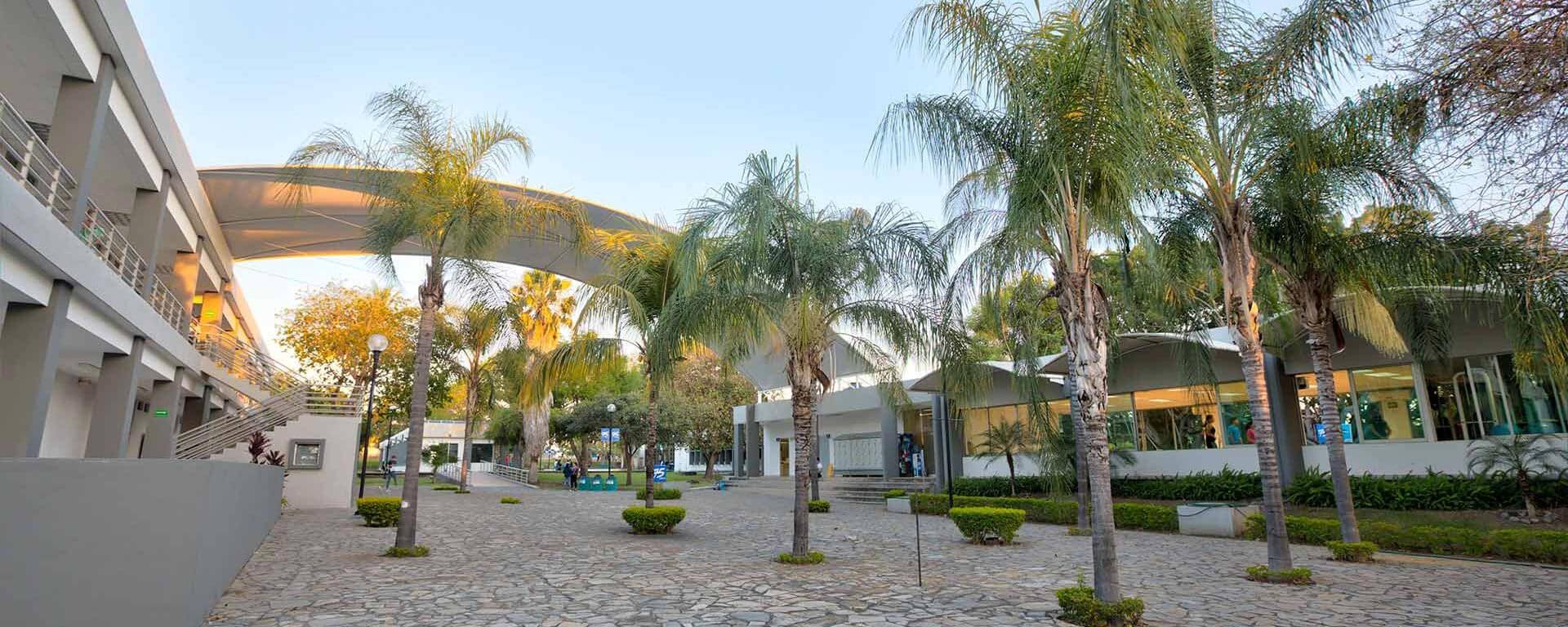"In the event of a discrepancy between the content of the English version and the original Spanish version the latter shall prevail".
Identity and address of the Controller
The Controller of the personal information you provide is the Instituto Tecnológico y de Estudios Superiores de Monterrey (hereinafter “ITESM”), domiciled at the address Av. Eugenio Garza Sada Sur No. 2501, Colonia Tecnológico, Monterrey, Nuevo León, México, C.P. 64700.
Personal data processed by ITESM
In order to comply with the purposes of processing of personal data of students of legal age, as well as of underage students over whom they exercise parental authority, indicated in this Privacy Notice, it is necessary for ITESM to process the following categories of personal data:
- Identification data;
- Contact data;
- Demographic data.
- Academic data
- Labor data
Likewise, we inform you that, in order to comply with the purposes stated in this Notice, ITESM will not collect or process sensitive personal data.
Primary purposes
ITESM will process your personal data for the following primary purposes:
- To verify your identity and grant you secure access to the service, or platform.
- To generate the single user record for access to the virtual community.
- To assess your competencies in specific areas, in order to identify strenghts and areas for improvement in your skills.
- To use the assessment results:
- To personalize the content and learning resources offered to you, adapting them to your needs and levels of competence.
- To use them for research purposes to improve the platform, develop new learning resources, and obtain information about trends and participants needs related to the evaluated competencies.
- To carry out studies of educational research and create academic publications with the purpose of enhancing knowledge in the educational field. Before using your personal data, anonymization techniques will be applied to ensure that you cannot be identified.
- To attend, register and follow up on the request(s) you make for the use of our services.
- To comply with and follow up on the terms and conditions, guidelines or regulations applicable to the service you receive or activity in which you participate.
- Send you communications, notifications and personal notices through different channels and technological communication mechanisms that ITESM considers pertinent in order to inform you of relevant information about the status of your participation in the activities you have registered or enrolled in or any matter that may be of interest to you; as well as to know your opinion regarding the attention you have received and the services we offer.
- To prepare reports for internal control.
- To safeguard the integrity and proper functioning of the platform.
- To generate digital recognition.
- To track payments
Data Transfers
Based on the provisions of article 37 of the LFPDPPP, ITESM may transfer your personal data without requiring your consent in the following cases:
- To controlling companies, subsidiaries or affiliates under common control of the responsible party (ITESM), or to a parent company or any company of the same group of the Controller party that operates under the same internal processes and policies;
- Competent authorities in the cases foreseen by the applicable regulations, in the event that we receive a mandatory requirement.
- When it is necessary for the maintenance or fulfillment of the legal relationship between you and ITESM, such as the case of individuals or legal entities, national or international, with which we have entered into binding legal agreements.
ARCO rights and/or revocation of consent
You or your legal representative can exercise any of your rights of access, rectification, cancellation or opposition (hereinafter “ARCO rights”), and revoke your consent for the processing of your personal data by sending an email datospersonales@itesm.mx and following the procedures, requirements and deadlines for the exercise of your ARCO rights and/or revocation of consent of our website https://tec.mx/en/arco-rights-andor-revocation-consent.
Limitation and / or Disclosure of your Personal Data
You may limit the use or disclosure of your personal data in events or activities that are carried out through digital tools and platforms, by not activating the camera, not using your personal image in the account with which you connect and/or not registering with your profile (it will depend on the platform used to carry out the event or activity).
In e-mail communications, by subscribing to the unsubscribe list, when it is available in the communication itself.
In all other cases, you may limit the use or disclosure of your personal information by email us your request to: datospersonales@itesm.mx.
The requirements for proving your identity, as well as the procedure for dealing with your request, will be governed by the same criteria indicated on our website: https://tec.mx/es/derechos-arco-yo-revocacion-del-consentimiento. If applicable, you will be registered on ITESM's own exclusion list.
Use of Cookies
ITESM uses several technologies to improve the efficiency of the Platform including your experience when navigating the site. Cookies are small amounts of information that are stored in the browser used by each user so that the server remembers certain information that can be used later. This information allows us to identify you and save your personal preferences to provide you with a better browsing experience.
We remind you that you can deactivate, disable or adjust the use of cookies and other technologies by following the procedures of the internet browser you use.
- Select the "settings" or tools option, according to your browser.
- Select the option to disable cookies. This process will not only disable cookies from our Platform, but from your entire browser.
The personal data that can be obtained through the use of these technologies are as follows: Identifiers, user names and passwords for a session; region in which you are; type of browser; type of operating system; date and time of the start and end of a session; web pages visited; searches carried out and advertising reviewed. These technologies may be disabled by following the procedures of the internet browser you are using.
ITESM Personal Data Department
It is important to inform you that ITESM has a Personal Data Department which, as part of its functions, is responsible to attend any questions you may have regarding the use of your information. Likewise, the Personal Data Department will follow up on any complaint or claim you may have related to the treatment of your personal information.
You may contact the ITESM Personal Data Department by sending an e-mail to the following address: datospersonales@itesm.mx.
INAI
If deemed necessary, we inform you that you have the right to go before the Instituto Nacional de Transparencia Acceso a la Información y Protección de Datos Personales (INAI) to assert any disagreement related to the processing of your personal data by ITESM.
Changes to this Privacy Notice
ITESM reserves the right, in its sole discretion, to change, modify, add or remove portions of this Privacy Notice at any time. Derived from legislative developments, internal policies or new requirements for the provision or offering of our services, this Privacy Notice will be subject to modification or update. In such case, ITESM will publish such modifications on the site: https://tec.mx/en/privacy-notice-virtual-learning-center and will indicate the date of the last version of the notice. We recommend you periodically check this page to see if any changes to the present notice have occurred.













































